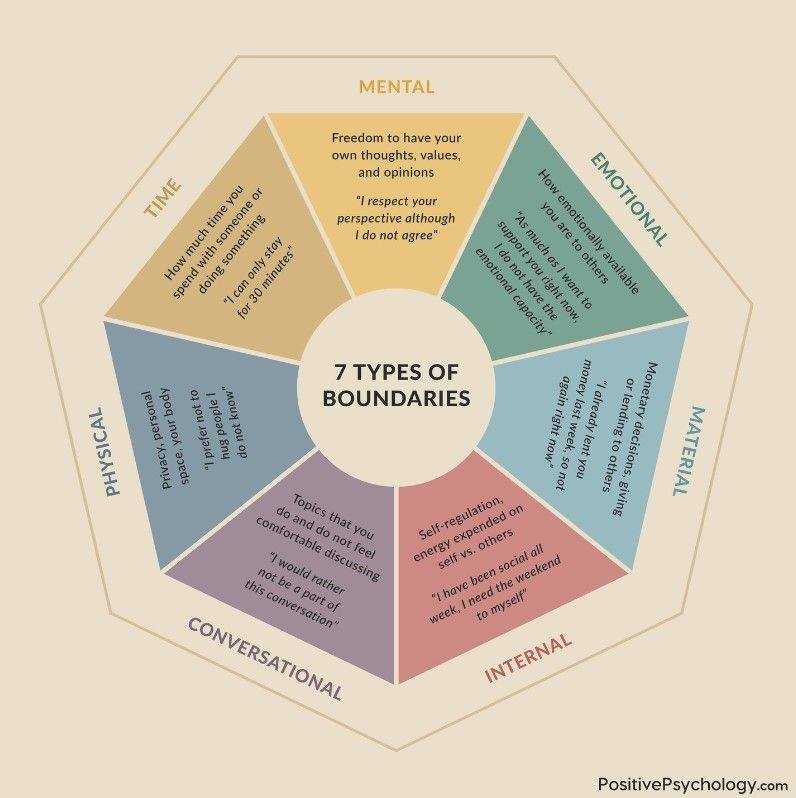12 Critical Early Warning Signs to Recognize Gaslighting Before It Destroys Your Reality

Have you ever walked away from a conversation feeling confused and questioning your own sanity? That disorienting feeling might be the result of gaslighting—a manipulation tactic so subtle yet devastating that many don't recognize it until they're deeply entangled.
Recent studies suggest that nearly 30% of people have experienced gaslighting in their lifetime, yet most couldn't identify it while it was happening. Recognizing the early warning signs is like having a psychological smoke detector—it alerts you to danger before the damage becomes severe, allowing you to protect your mental wellbeing and reclaim your reality.
Understanding Gaslighting and Why It Matters
Gaslighting is a form of psychological manipulation where someone intentionally distorts your memories and perceptions, causing you to question your reality. This manipulation tactic goes beyond simple disagreements or unkindness - it's a calculated effort to make you doubt your sanity and experiences.
When you're being gaslit, you may frequently apologize for your reactions to another person's poor behavior or second-guess your understanding of interactions. The emotional impact can be severe, leading to feelings of confusion, helplessness, and a disconnection from your sense of self.
Recognizing warning signs of abuse early is essential because its effects compound over time, gradually eroding your self-confidence and ability to trust your own judgment.
Why Gaslighting Is Insidious
Gaslighting often begins subtly, with small moments that make you question your perception. What makes it particularly dangerous is how it progresses over time - the manipulator gradually increases their tactics as your defenses weaken. You might notice yourself becoming more timid in expressing opinions or preparing statements with evidence before sharing them.
As the pattern continues, you may feel mentally unstable despite previously being confident in your sanity. Many victims describe a mental fog descending, making it increasingly difficult to distinguish what's real. The most damaging aspect is how it undermines your relationship with yourself - you begin to rely on the gaslighter for reality validation rather than trusting your own instincts and memories.
Early Signs and Behavioral Indicators of Gaslighting
Gaslighting often starts with subtle behaviors that can be easy to miss. You might notice the person frequently lying about events or conversations, then confidently denying these lies even when confronted with evidence. They'll tell you things like "that never happened" or "you're remembering it wrong" despite your clear memory of the situation.
A common tactic is trivializing your feelings—when you express hurt or concern, they dismiss you with phrases like "you're too sensitive" or "you're overreacting." They may shift blame onto you for situations they caused, making statements such as "this wouldn't have happened if you hadn't..."
Watch for moments when they use hidden signs of manipulation or sarcasm to dismiss serious issues or wrap hurtful comments in affectionate language ("I'm just teasing you, babe"). Pay attention if they begin criticizing friends or family who support you, gradually isolating you from people who might validate your experiences.
Not Sure If You Are Been Gaslighted?
Sometimes it's hard to recognize gaslighting and emotional manipulation. Our Gaslighting Check app helps you identify patterns and provides personalized guidance based on your specific situation.
Try Gaslighting Check App NowPersonal Red Flags and Internal Experiences
When you're experiencing gaslighting, you'll likely notice yourself constantly doubting your memories and perceptions. "Did that really happen?" becomes a recurring thought pattern. Simple conversations with the gaslighter trigger anxiety, creating a pit in your stomach before they even speak.
You might catch yourself apologizing excessively—even for things that aren't your fault. "I'm sorry for misunderstanding" becomes your default response, even when you understood perfectly. Your confidence gradually diminishes as you internalize the idea that your reality is somehow flawed.
Many gaslighting victims describe feeling a persistent sense that something is wrong, but they can't quite identify what. You might feel emotionally unstable or "crazy"—a dramatic shift from your normal state. This self-doubt creates a cycle where you question your feelings, then feel guilty for having them in the first place.
Contexts and Patterns That Increase Suspicion of Gaslighting
Gaslighting often follows recognizable patterns. You might notice cycles where tension builds, an incident occurs, the gaslighter denies reality, and then temporary calm returns - only for the cycle to repeat. This pattern leaves you constantly off-balance and questioning yourself.
Pay attention to stark differences between public and private behavior. Many gaslighters present as charming and reasonable to others while showing manipulative behavior behind closed doors. When you mention this discrepancy, they'll claim you're imagining things.
Manipulation typically escalates when you attempt to establish boundaries or question their actions. Their tactics intensify as they feel control slipping, often resulting in more aggressive denial of your reality.
Power imbalances frequently enable gaslighting. The manipulator may leverage financial control, emotional dependency, or social influence to maintain their position. They'll remind you of these power dynamics when you challenge their version of events.
Examples of Gaslighting Statements and Tactics
Gaslighting often involves specific phrases designed to make you question your reality. When someone says, "That never happened," despite your clear memory of an event, they're attempting to rewrite history. Statements like "You're too sensitive" or "You're overreacting" dismiss your valid emotional responses.
Watch for blame-shifting tactics: "If you hadn't made me angry, I wouldn't have done that." This transfers responsibility for their actions onto you. Another red flag is when they claim, "I was just joking" after saying something hurtful, making you feel foolish for being upset.
In healthy conflict, both parties acknowledge feelings and work toward resolution. Gaslighters, however, avoid accountability with phrases like "You're imagining things" or "No one else has a problem with me." They might say "I did that because I love you" to justify controlling behavior, confusing love with manipulation.
These tactics gradually erode your self-trust, leaving you dependent on the gaslighter's version of reality. Understanding these shocking examples of gaslighting can help you identify when it's happening to you.
Psychological and Health Impacts of Gaslighting
Gaslighting takes a serious toll on your psychological wellbeing. Many survivors develop anxiety and depression as they constantly question their reality and perception. You might notice intrusive thoughts, sleep disturbances, or physical symptoms like headaches and digestive issues that seem to have no medical cause.
One of the most debilitating effects is decision paralysis. After repeatedly being told your judgment is flawed, you may find yourself unable to make even simple choices without seeking validation. This hesitation extends beyond your relationship with the gaslighter, affecting all areas of your life.
Identity confusion often follows prolonged gaslighting. You lose touch with your own preferences, values, and boundaries. "Who am I really?" becomes a question without a clear answer as your sense of self erodes beneath constant manipulation.
Perhaps most concerning is the development of learned helplessness. After repeatedly failing to assert your reality, you stop trying. This resignation can persist long after the gaslighting relationship ends, making you vulnerable to future manipulation and hampering your recovery process.
Documenting and Validating Experience

Keeping a detailed journal helps maintain connection to your reality and experiences
When you're experiencing gaslighting, documenting interactions becomes crucial for maintaining your sense of reality. Keep a private journal where you record conversations, incidents, and your feelings immediately afterward. Include specific details like date, time, and exact phrases used—these concrete records can help combat memory manipulation.
If legal in your area, consider recording important conversations. As one Reddit user noted, "Record everything or keep a diary of interactions. Trust your past documentation as true, regardless of current doubts."
Seek validation from trusted friends or family members who aren't connected to the gaslighter. Share your experiences and ask for their perspective. Often, others can see manipulation patterns more clearly than you can when you're in the situation.
When questioning yourself, try reality-checking techniques. Ask specific, pointed questions about incidents rather than accepting vague dismissals. Your gut feeling is often correct—if something feels wrong, trust that instinct.
Communication and Boundary-Setting Strategies

Understanding different types of boundaries is essential for protection against manipulation
When communicating with someone who gaslights you, use specific observations rather than general accusations. Instead of saying "You always twist my words," try "When I said X earlier, you later claimed I said Y." This concrete approach makes it harder for them to dismiss your concerns.
Setting boundaries is essential. Clearly state what behavior is unacceptable and what consequences will follow. For example: "If you continue to deny what I know happened, I'll need to end this conversation." Then follow through consistently.
Avoid getting trapped in justification loops. Gaslighters often demand endless explanations or evidence, wearing you down until you doubt yourself. Remember that you don't need to prove your reality to someone who's actively working to distort it.
Trust your own perceptions. When they say "that never happened," respond firmly: "I remember it clearly, and I'm not going to debate my experience." This maintains your connection to your truth without engaging in manipulation.
Seeking Support and Building a Safety Net
_l.jpg)
Professional therapy provides validation and practical strategies for recovery
When experiencing gaslighting, reaching out for professional help can be life-changing. A trained therapist can offer validation and techniques to rebuild your self-trust. Look for mental health professionals with experience in trauma or emotional abuse who understand the unique dynamics of gaslighting relationships.
Friends and family members who aren't connected to your gaslighter can provide crucial reality checks. As one Reddit user shared, "Having trusted people who can say 'No, that's not what happened' makes all the difference." Choose confidants carefully—people who listen without judgment and believe your experiences.
Consider creating a safety plan if you're in a relationship with someone who gaslights you. Document important information: copies of identification, financial records, and emergency contacts. Set aside money in a private account if possible. Identify safe places you can go if needed, whether a friend's home or local shelter.

Support groups provide community and validation from others with similar experiences
Many survivors find support groups valuable for healing. Connecting with others who've had similar experiences reduces isolation and provides practical strategies for recovery and healing. Online forums can be helpful when in-person groups aren't accessible, offering community while maintaining anonymity.
Recovery and Self-Care Post-Gaslighting
Rebuilding your sense of self after experiencing gaslighting takes time and patience. Start by trusting your perceptions again—remind yourself that your feelings and memories are valid. When doubts creep in, pause and ask "Is this my authentic thought, or the gaslighter's voice?"
Grounding techniques can help when you feel disconnected from reality. Try the 5-4-3-2-1 method: identify five things you can see, four you can touch, three you can hear, two you can smell, and one you can taste. This anchors you in the present moment and strengthens your connection to your own experience.
Reconnect with supportive people who affirm your reality. Many survivors find their social circles shrink during gaslighting relationships, as manipulators often isolate their targets. Reach out to old friends or family members who knew you before the gaslighting began—they can help you remember who you truly are.
Legal and Workplace Considerations
Documentation becomes crucial when dealing with gaslighting in legal contexts like divorce, custody battles, or housing disputes. Keep detailed records of all interactions, save text messages, emails, and voicemails that demonstrate manipulation patterns. If you share children with a gaslighter, use a co-parenting app that records all communications rather than direct texts or calls.
In workplace settings, document interactions with colleagues or supervisors who use gaslighting tactics. Save emails, meeting notes, and performance reviews. When possible, have a third party present during conversations with the person who's manipulating you.
Some workplaces have policies against psychological harassment—check your employee handbook. Human resources can sometimes help, but approach with caution as they primarily protect the company's interests, not yours.
Legal protections vary by location, but restraining orders may be available if gaslighting escalates to threats or stalking. Consult with an attorney who specializes in emotional abuse cases to understand your options.
Taking Back Your Reality
Recognizing gaslighting early is an act of self-preservation. By understanding the warning signs—from subtle reality distortions to outright denial of your experiences—you empower yourself to trust your perceptions and break free from manipulation. Remember that your feelings and memories are valid, regardless of anyone's attempts to convince you otherwise.
The journey to healing may be challenging, but it begins with acknowledging what's happening. Reach out for support, document your experiences, and practice self-compassion. Your reality matters, and no one has the right to distort it. By recognizing gaslighting early, you reclaim not just your truth, but your power to define your own experience.